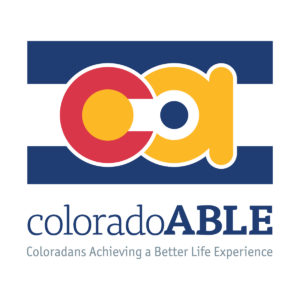
You have to know where you have been in order to know where you are going.
The foundation of AdvocacyDenver is advocacy. In the first years parents supported each other, advancing the dream that one day all children would be able to attend school. For decades countless number of advocates worked tirelessly to forward the human rights of children and adults with disabilities. Over time we realized change in the different public systems. Sometimes change was a result of collaborative work championing legislation and forwarding systemic change, and sometimes leaders would listen. Other times system leaders, in particular school systems, would lawyer up and taunt advocates to “bring it on”.
[Read more…] about AdvocacyDenver History Part VIIAdvocacyDenver History Part VI

You have to know where you have been in order to know where you are going.
In AdvocacyDenver History Part I we said that the Denver County Chapter of the National Association for Retarded Children was established May 12, 1954, by parents to address the lack of access for children with disabilities to public education and in-home supports. With time the capitol C stood for citizen. The Denver association moved to an acronym ARC and eventually our articles of incorporation were modified to Arc of Denver. Officially we are Arc of Denver doing business as AdvocacyDenver. Why the name change; why did we rebrand?
[Read more…] about AdvocacyDenver History Part VIAdvocacyDenver History Part V

You have to know where you have been in order to know where you are going.
Last month we talked about the early years of our organization and our guardianship program where the advocates before us took pride in working to move adults from institutional settings to community settings with appropriate support. For many of these adults it was the first time they felt they had a voice in terms of when they would get up in the morning, what they would eat, wear and how they would spend their free time. At the same time advocates were working with adults who were raised at home, some attended “special” programs in a public school, some attended a separate school, and some were only “allowed” to attend school for a while… Everyone’s journey was different. Some remembered being bullied, called names, and each experienced adversity. People First was established in the mid-sixties as a grassroots movement to empower self-advocates with disabilities to have a voice in addressing issues of equality. People first language puts the person before the disability.
[Read more…] about AdvocacyDenver History Part VAn Introduction to Colorado ABLE Accounts
ColoradoABLE is an exempt account that allows populations of people with disabilities to save without losing their federal benefits, such as SSI and Medicaid. In the webinar you will learn the benefits of ABLE accounts, how to use the account, what are qualified disability expenses and how to enroll in ColoradoABLE.
[Read more…] about An Introduction to Colorado ABLE AccountsUna introducción a las cuentas ABLE de Colorado

ColoradoABLE es una cuenta exenta que permite a las poblaciones de personas con discapacidades ahorrar sin perder sus beneficios federales, como SSI y Medicaid. En el seminario web aprenderá los beneficios de las cuentas ABLE, cómo usar la cuenta, cuáles son los gastos calificados por discapacidad y cómo inscribirse en ColoradoABLE.
[Read more…] about Una introducción a las cuentas ABLE de ColoradoDispute Resolution Options for K-12 Students with Disabilities
In this presentation by AdvocacyDenver and Disability Law Colorado, we provide an overview of informal and semi-formal dispute resolution options that are available for K-12 Students with Disabilities. We discuss formal administrative dispute resolution options that are available, and filing lawsuits for education-related matters. You should always consult an attorney first if you are considering filing a lawsuit.
[Read more…] about Dispute Resolution Options for K-12 Students with DisabilitiesOpciones de resolución de conflictos para alumnos de K-12 con discapacidad
En esta presentación de AdvocacyDenver y Disability Law Colorado, brindamos una descripción general de las opciones de resolución de conflictos informales y semiformales que se encuentran a disposición que están disponibles para alumnos de K-12 con discapacidad. Discutimos las opciones formales de resolución de disputas administrativas que están disponibles y la presentación de demandas por asuntos relacionados con la educación. Siempre debe consultar primero a un abogado si está considerando presentar una demanda.
[Read more…] about Opciones de resolución de conflictos para alumnos de K-12 con discapacidadAbout the Community Mental Health Supports Medicaid Waiver
The Community Mental Health Supports waiver provides assistance to people with a mental illness that require long term supports and services in order to remain in a community settings.
[Read more…] about About the Community Mental Health Supports Medicaid WaiverAcerca de la Exención de Medicaid de Apoyo a la Salud Mental Comunitaria
La exención Community Mental Health Supports brinda asistencia a las personas con una enfermedad mental que requieren apoyos y servicios a largo plazo para permanecer en un entorno comunitario.
[Read more…] about Acerca de la Exención de Medicaid de Apoyo a la Salud Mental ComunitariaAbout the Complementary and Integrative Health Medicaid Waiver
The Complementary and Integrative Health Waiver is available to Home and Community Based Services (HCBS) eligible Coloradans living with a spinal cord injury, multiple sclerosis, muscular dystrophy, brain injury, spina bifida, or cerebral palsy with the inability for independent ambulation over the age of 18.
[Read more…] about About the Complementary and Integrative Health Medicaid Waiver